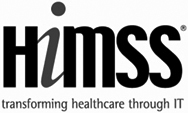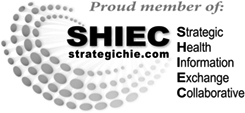What is Reliance eHealth Collaborative?
Reliance was formed in 2012 to help health care providers electronically communicate with one another to
better care for their patients. As a community based non-profit (501c3), Reliance provides secure and trusted
information sharing among a patient’s care team. Reliance’s mission is to facilitate patient-centered care
through a community-driven and provider-led collaboration that promotes better health and provides value
through secure and trusted patient information sharing. Reliance is governed by an all-volunteer Board of
Directors, which is comprised of physicians, hospitals, payers, consumers, public health, mental health and
community-based organizations. All interested stakeholders are engaged in committees who advise the
Board’s decision-making process.
Why Does Reliance Exchange Behavioral Health Data?
Reliance seeks to support the care team in improving coordination for patients receiving behavioral health
care; and to bridge the information divide between physical health care and behavioral health care services
and providers. A Medicaid study1 showed that knowledge of physical and behavioral health co-morbidities,
combined with coordinated care management, was shown to lead to improved outcomes resulting from
ongoing outpatient physician care, vaccination, primary and preventive tests, diabetes monitoring, and
medication management. The study demonstrated that those with Serious Mental Illness (SMI) had 3.5 times
higher rates of emergency room visits, four times the rate of primary care visits, and five times the rate of
specialist visits. This group was more than three times more likely to suffer from diabetes, diseases of the
heart, respiratory disorders, stroke and arthritis. Overall, payments for Medicaid patients with SMI triple that
spent on non-SMI patients.
How is Behavioral Health Data Protected and Exchanged?
Reliance has implemented a Consent Management Model, which was developed over two years through a
rigorous review of the State and Federal laws protecting mental health and substance use disorder (SUD)
treatment; and the input and guidance from the Reliance Behavioral HealthWorkgroup. Reliance integrates
mental health and SUD treatment information into the Community Health Record based on a Common
Consent Model that is compliant with Federal (42 CFR Part 2) regulations as revised in February 2017. A
Release of Information (ROI) is entered into the Reliance Community Health Record consistent with the
patient’s wishes to share his/her protected information with one or more provider organizations participating
in Reliance. Based on the terms of the ROI and the user’s authorization to view protected SUD information,
they can access the combined physical health and SUD information for the period during which the ROI is valid.
The ROI may be changed and/or revoked at any time based on the patient’s wishes.
Is Behavioral Health Data Available in an Emergency?
Yes, participating hospitals’ emergency department providers can access protected SUD information without
patient consent in the case of a “bona fide medical emergency” when consent cannot be obtained. The system
requires that an emergency provider attest to the nature of the emergency before he/she is able to access the
patient’s protected information. The Part 2 covered SUD provider/facility is immediately notified that SUD
information was accessed, and a report is provided to the treatment facility, so that it can be recorded in the
patient’s record at the Part 2 covered SUD facility.
Can Patients Request a Report of Disclosures?
Yes, patients can request a report from Reliance or their behavioral health provider that summarizes the
organizations that have accessed their BH data. Furthermore, providers disclosing or accessing SUD
information are notified that Federal confidentiality rules (42 CFR Part 2) prohibit them from making any
further disclosure of SUD information unless further disclosure is expressly permitted by the written consent of
the person to whom it pertains.
What is the Benefit of Exchanging Behavioral Health Information to My Organization?
As a Part 2 covered SUD treatment facility, you no longer have to manage referrals and requests for patient
information via fax and paper. Exchanging your patient’s information through Reliance means that you have
peace of mind. The exchange of information is automated, meaning no more manual processing and/or
printing information from your EHR. When a patient provides a ROI to share their records, a simple process
allows for entering the consent into the HIE, which automatically makes the patient’s information available to
other users who have a relationship with the patient and who have authorization to view protected SUD
information in Reliance. Furthermore, no matter the time of day or night, an emergency provider can access
important SUD treatment information that may save your patient’s life. Reliance is fully compliant with 42 CFR
Part 2, including the necessary auditing and reporting requirements to help your organization stay compliant
as well.
Who Participates in Reliance?
Reliance participants include: physicians, dentists, mental health and substance use disorder treatment
facilities, home health, physical, occupational and speech therapists, hospitals and health systems,
Coordinated Care Organizations, public health departments, and more. Visit our website to learn more about
what types of data Reliance provides, who is contributing data to Reliance and who is using Reliance services
http://RelianceHIE.org/participants.



